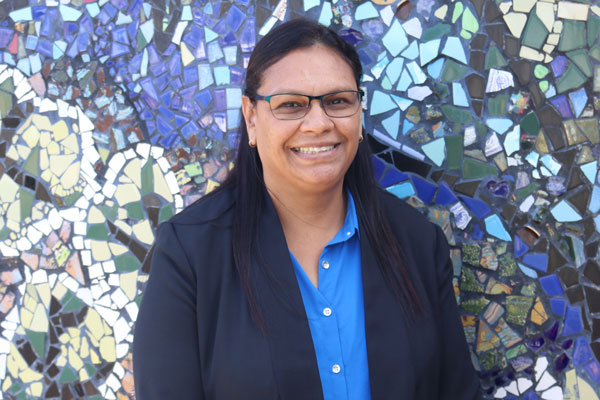Indigenous nurse and midwife joins Metro North as new director
Registered nurse and proud Yidinji woman from the Atherton Tablelands, Sherry Holzapfel has joined Metro North as the new Director of the Aboriginal and Torres Strait Islander Health Unit (A&TSIHU).
Sherry commenced the role in mid-August and will lead the implementation of the new Better Together Aboriginal and Torres Strait Islander Health Plan 2019-2022 for Australia’s largest public health service.
Sherry has experience in healthcare leadership, most recently working for Indigenous healthcare organisations in northern Queensland including the Palm Island Community Company in Townsville and Mamu Health Service Ltd in Innisfail.
She joins Metro North at an exciting time for Indigenous health with the recent launch of the Better Together plan and localised Reconciliation Action Plans soon to be launched for each hospital.
“I’m looking forward to working and being part of Metro North, to bring my culture, beliefs, initiatives and experiences. I’m excited for this new opportunity and journey. I am very passionate when it comes to my people and working with my people,” Sherry said.
“Metro North is already leading the way with the close the gap initiatives; my goal is to ensure this great work continues and to work as a team to create better health outcomes for our people.”
Sherry has extensive experience in Queensland Health as a health worker, registered nurse and midwife and has worked in several Aboriginal and Torres Strait Islander community-controlled organisations as senior management. Her most recent position was working on Palm Island as the integration/primary health
services manager integrating a new primary health facility.
Her career commenced in Toowoomba as an Indigenous Health Worker, during this time she balanced full time study, work and a young family. She became one of the first Indigenous Midwives at Toowoomba Hospital and was a respected clinician for Indigenous families.
Sherry said her experience working with Indigenous communities across the State has allowed her to build good relationships and a core understanding of the health issues and challenges facing Aboriginal and Torres Strait Islander people.
“Coming from a primary healthcare background, continuity of care from hospital back to community is very important. Follow-up care is integral, as well as health promotion and prevention for our communities,” she said.
“Listening to the community needs will be at the forefront of this role and listening to our Indigenous staff. Cultural appropriateness is very important, and the only way to do that is having more Indigenous staff working in the health system on the ground and in leadership roles.
“It’s been seven years since I worked within Queensland Health and I am excited of all the positive changes that have been made for our Aboriginal and Torres Strait Islander patients, families and communities.”
For Sherry, a desire for a career in health began at a young age after she completed a school-based nursing placement with BlueCare. Four of her six siblings now work in health and it is a career path she hopes to encourage more Indigenous youth to consider.
“We see the health issues and concerns for our mob. We have to look after our people and the best way to do that is in health; to be involved, participate and be committed and dedicated to improving the health of our people for generations to come,” she said.
Sherry has cultural connections with the Kuku-Thaypan from Laura and Gungarri tribe from Mitchell and the Badtjala tribe from Fraser Island. She returns home back on country to maintain cultural connection and family traditions of hunting and gathering.

